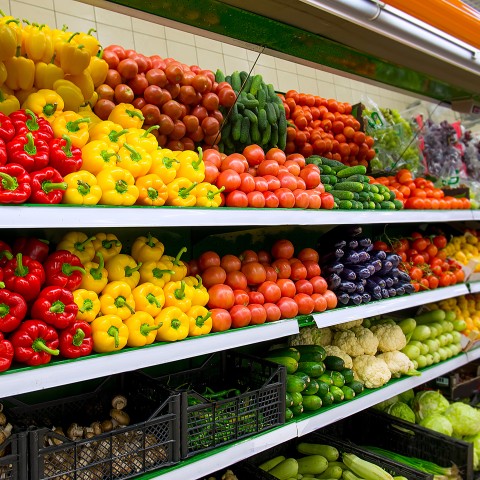
What’s the best way to learn a foreign language? To speak it as early as you can! Are you going to achieve this by stuffing yourself with tedious grammar rules, barren conjugation tables, or endless vocabulary lists? Not likely.
A smarter approach is to quickly pick up on the most common and useful French sentence patterns—the kind that will allow you to communicate effectively in most day-to-day situations with your local friends or colleagues. Sure, it won’t allow you to express subtle thoughts on complicated topics. But it should cover a wide range of interactions and help you practice on a regular basis without being frustrated when you can’t say something as vital as “I like cheese.”
In this article, you’ll learn everything about the 10 most useful French sentence patterns, from making the most basic statement to asking questions, as well as expressing what you want or what you’ve done. And I promise you that once you’re comfortable with just these 10 basic French sentence patterns, you’ll be able to communicate more efficiently than after a hundred pages of grammar books!
 Table of Contents
Table of Contents
- A is B
- It Is
- I Want
- I Need To
- I Like, I Love
- I’m Doing it Right Now
- I’ve Just Done It
- I’m Going to Do It
- Asking Questions
- Asking for Permission
- Le Mot De La Fin

Be the architect of your French sentences!
1. A is B
First on our French sentence list is how to describe something or someone, using nouns or adjectives to give it substance. To do this, we simply use the verb être (“to be”). You can find details about its conjugation right here.
- Paul est mon ami. (“Paul is my friend.”)
- Ce vin est un Saint Emilion. (“This wine is a Saint Emilion.”)
- Julie est ma copine. (“Julie is my girlfriend.”)
- Bastien était mon patron. (“Bastien was my boss.”)
- Les tomates sont des fruits. (“Tomatoes are fruits.”) – But are they, really? The jury is still out.
Now, here’s how it looks when we describe something or someone using an adjective:
- Paul est beau. (“Paul is handsome.”)
- Cette journée est importante. (“This day is important.”)
- Julie est très gentille. (“Julie is really kind.”)
- Bastien était jeune. (“Bastien was young.”)
- Cette voiture est neuve. (“This car is brand-new.”)
- → Learn many more useful adjectives in our article about the Top 100 most common French adjectives. It’s available for free on FrenchPod101.com.

Les tomates sont des légumes. (“Tomatoes are veggies.”)
2. It Is
Now that we’ve talked about “A is B,” there won’t be anything shockingly difficult here. But it is such a common French sentence structure that we need to see it in more detail.
C’est (“it is”) uses the verb être, and it can be used in a wide range of situations to describe either a thing, a situation, or an action.
- C’est super ! (“It’s great!”)
- C’est très intéressant. (“It’s very interesting.”)
- C’est gentil, merci. (“It’s kind, thank you.”)
- C’est assez dangereux. (“It’s rather dangerous.”)
- C’est trop tard. (“It’s too late.”)
- → Learn even more adjectives and their pronunciation in our free list of The 50 Most Common French Adjectives!
3. I Want

Anyone will tell you how important it is that you know what you want, but how do you talk about it in French? Let’s find out.
We use the verb vouloir (“to want”), and it works very similarly to how it does in English, with the indicative mood for something you WANT and the subjunctive mood for something you WOULD LIKE.
- Je veux (“I want”)
- Je voudrais (“I would like”)
You’ll find the full conjugation table for vouloir right here.
- Je veux un café. (“I want a coffee.”)
- Je veux te voir. (“I want to see you.”)
- Je veux que tu sois là. (“I want you to be there.” Literally: “I want that you would be there.”)
- Elle voudrait une bière. (“She would like a beer.”)
- Je voudrais venir demain. (“I would like to come tomorrow.”)
- Je voudrais que tu chantes. (“I would like you to sing.” Literally: “I would like that you would sing.”)
And let’s not forget “I don’t want,” as the French have no problem saying they don’t want something!
- Je ne veux pas venir. (“I don’t want to come.”)

Je ne veux pas venir. (“I don’t want to come.”)
4. I Need To
What’s more important than the things you want? The things you need!
Expressing your needs is something you’re likely to do on a daily basis: at work (I need more time; I need a new computer; I need friendlier customers), at home (I need a nap; I need to wash the dishes; I need an enormous fondue savoyarde and a bottle of pinot noir), or with friends (I need a beer; I need a cigarette; I need to kiss that girl tonight).
There are several ways to express your needs:
- J’ai besoin de (“I need,” or literally “I have need of”)
| J’ai besoin + Nominal | J’ai besoin d’un café. (“I need a coffee.”) |
| J’ai besoin + Infinitive verb | J’ai besoin de boire un café. (“I need to drink a coffee.”) |
- Je dois (“I must,” “I need to”)
| Je dois + Infinitive verb | Je dois boire un café. (“I need to drink a coffee.”) |
- Il me faut (“I need”)
This one doesn’t really have a literal translation. It uses the verb falloir (“to have to”), conjugated with il (“he”). In a sentence like this, il is used as an impersonal pronoun, just like in the sentence Il pleut (“It rains”).
| Il me faut + Nominal | Il me faut un café. (“I need a coffee.”) |
Technically, you could also say: Il me faut boire un café, but it’s overly sophisticated and would make people smile. You can use it in writing, though.
Here are some more French sentence examples for expressing needs:
- J’ai besoin de me reposer. (“I need to rest.”)
- Je dois te parler. (“I need to talk to you.” / “I must talk to you.”)
- Il me faut plus de temps. (“I need more time.”)
- Nous avons besoin d’une réponse. (“We need an answer.”)
- Il nous faudrait une nouvelle télé. (“We would need a new TV.”)
- → Make sure to visit our vocabulary list on the Top 10 Sentence Patterns for Beginners, with audio recordings to practice your pronunciation. It’s freely available on FrenchPod101.com.

J’ai besoin de dormir. (“I need to sleep.”)
5. I Like, I Love
Our desires and needs being satisfied, let’s talk about things we love.
The main thing you should know about “I like” and “I love” in French, is that we have one verb for both. You heard me: aimer can translate as “like” or “love,” depending on the context, and we have different ways to express them.
J’aime bien (“I like”)
Literally: “I like well,” this is for what you find quite enjoyable. You’re not crazy about it or ready to do anything to have it. You just like it, plain and simple.
- J’aime bien la bière, mais je préfère le cidre. (“I like beer, but I prefer cider.”)
- J’aime bien ce film. (“I like this movie.”)
J’aime (“I like” / “I love”)
This is the gray area. You can use aimer for things you “love” or “like” in English. It’s often in the middle, but not always; you’ll sometimes have to read the situation to find out.
- J’aime le fromage. (“I like cheese.”)
Here, I’m not saying it’s my favorite thing and I love it so much, but it’s stronger than j’aime bien.
- Je t’aime. (“I love you.”)
J’adore (“I love”)
When j’aime isn’t enough—when you’re talking about something you’re really fond of, like one of your favorite foods or a movie you could watch over and over—then you could use the verb adorer.
- J’adore la tartiflette ! (“I love tartiflette!”)
- J’adore cet album. (“I love this album.”)
What about people?
When it comes to people, should you say j’aime or j’aime bien? The answer is rather simple:
- Family, best friend, and romantic partner: J’aime.
- Friends and acquaintances: J’aime bien.
Here are a few examples to help you make sense of it:
- J’aime mes parents. (“I love my parents.”)
- Elle aime Nicolas. (“She loves Nicolas.” / “She’s in love with Nicolas.”)
- J’aime bien Kévin, il est sympa. (“I like Kévin, he’s nice.”)

J’aime les croissants. (“I like croissants.”)
6. I’m Doing it Right Now
This French sentence construction uses a verb equivalent to the English participle: verb + ING, in sentences like “I’m eating” or “She’s sleeping.”
In many cases, you could simply use the indicative present:
- Je mange. (“I’m eating.”)
- Elle dort. (“She’s sleeping.”)
But if you want to stress the fact that this is an ongoing process, the structure is a little bit more complicated. For this, we use: être en train de (literally: “to be in the process of”).
- Je suis en train de manger. (“I’m eating now.”)
- Elle est en train de dormir. (“She’s sleeping now.”)
- Nous sommes en train d’emménager. (“We are moving in now.”)
And before you ask, it doesn’t mean that I’m eating in the train or she’s sleeping in a train. None of this has to do with the railway network!

7. I’ve Just Done It
Another hugely popular French sentence pattern is Je viens de (“I’ve just”). Literally, it means “I come from” / “I’m coming from,” and indeed, you’re just “coming from” this last action, in a way.
- Je viens de dormir. (“I’ve just slept.”)
- Je viens de manger. (“I’ve just eaten.”)
You can make it even more immediate by adding juste (“just”) or even tout juste (literally: “all just”).
- Je viens juste de dormir. (“I’ve just slept now.”)
- Je viens tout juste de manger. (“I’ve just eaten right now.”)
8. I’m Going to Do It
Similarly, you’ll want to know how to talk about something you’re about to do. Luckily, there won’t be anything complicated here, as this sentence is formed exactly like in English, with the verb aller (“to go”).
- Je vais dormir. (“I’m going to sleep.”)
- Elle va manger. (“She’s going to eat.”)
- Nous allons bientôt partir. (“We’re going to leave soon.”)
Just like in English, it has this double meaning of “I’m about to” and “I’m moving toward,” but with context, it never creates any confusion.
In spoken French, this structure is very often used to talk about the future, much more often, actually, than the future tense itself. As a result, this might be the most important pattern on this list!
- → Do you need some verbs to use with patterns #6, #7, and #8? Make sure to check out our List of the 50 Most Common French Verbs with audio recordings!

Je viens de me lever. (“I’ve just got out of bed.”)
9. Asking Questions
Especially as a foreigner, we can’t stress enough the importance of learning how to form questions.
Whether you’ll be looking for a place, a person, or a word, chances are you’re gonna spend a lot of time asking questions. Let’s see the most popular French patterns for that.
We’ll start from this simple declarative sentence:
- Tu aimes les chats. (“You love cats.”)
There are mainly three ways to turn this into “Do you love cats?”
- Aimes-tu les chats ?
- Est-ce que tu aimes les chats ?
- Tu aimes les chats ?
#1 is barely ever used in spoken French, but is popular in writing.
#2 and #3 are equally common, and you should ideally master both. There’s not much difference in meaning, except that #2 makes clear from the start that you’re gonna ask a question, while #3 only expresses it at the end (thanks to the intonation).
- Aimes-tu les chats ?
Nothing difficult here. We’re simply inverting the verb and the pronoun.
It would be the same with any verb or pronoun, but it only works when the subject is a pronoun.
- Voulez-vous du vin ? (“Do you want wine?”)
- Allons-nous dormir ? (“Are we going to sleep?”)
- Est-elle partie ? (“Is she gone?”)
- Mange-t-il ici ? (“Is he eating here?”)
Did you notice this weird t- in the last sentence? We use it with the pronouns that start with a vowel sound, such as il, elle, ils, and elles, to make the sentence flow smoothly and avoid having an awkward transition from vowel to vowel.
- Est-ce que tu aimes les chats ?
Est-ce que literally means “is it that.” So, our sentence would translate to: “Is it that you love cats?” It’s invariable regardless of the verb or subject, and it works with anything, not just pronouns.
- Est-ce que vous voulez du vin ? (“Do you want wine?”)
- Est-ce que nous allons dormir ? (“Are we going to sleep?”)
- Est-ce qu’elle est partie ? (“Is she gone?”)
- Est-ce qu’il mange ici ? (“Is he eating here?”)
- Tu aimes les chats ?
This one is really straightforward. Simply take the declarative sentence and end it with an interrogation mark. We don’t use it in formal writing, but very often in spoken French with the right intonation.

Of course I love cats. Who could resist these eyes?
Now, what if I want to ask questions about What, Where, When, How, or Why?
Let’s take a look at each of the three forms with the simple sentence: Tu manges. (“You eat.”)
| “What are you eating?” | Que manges-tu ? | Qu’est-ce que tu manges ? | Tu manges quoi ? |
| “Where are you eating?” | Où manges-tu ? | Où est-ce que tu manges ? | Tu manges où ? |
| “When are you eating?” | Quand manges-tu ? | Quand est-ce que tu manges ? | Tu manges quand ? |
| “How are you eating?” | Comment manges-tu ? | Comment est-ce que tu manges ? | Tu manges comment ? |
| “Why are you eating?” | Pourquoi manges-tu ? | Pourquoi est-ce que tu manges ? | Pourquoi tu manges ? |
And last but not least, here’s how you can stress a question, like you would do in English with “Right?” or “Isn’t it?”
- Tu aimes les chats, non ?
- Tu aimes les chats, n’est-ce pas ?
- Tu aimes les chats, hein ?
This is a declarative phrase, followed by a short question. Non ? is probably the most common.
- → For more question examples, don’t forget to stop by our free list of The Top 15 Questions You Should Know for Conversation! It’s free on FrenchPod101.com.
10. Asking for Permission
And finally, going to France, you might want to work on your first impression by following the well-known French etiquette.
Luckily, being polite isn’t rocket science, and with only a few set French phrases, you’ll get through any daily situation! These phrases are:
- “Can I ____?”
Just like we explained in section #9, there are three ways you can ask this question. The first one is only for written French, while the other two are equally common. We use the verb pouvoir (“can”).
1. Puis-je avoir un verre d’eau ? (“Can I have a glass of water?”)
2. Est-ce que je peux avoir un verre d’eau ?
3. Je peux avoir un verre d’eau ?
- “Please”
S’il vous plaît (“please”) literally means: “If it pleases you.” It might sound very fancy, but it’s actually the simplest way we have to say “please.” With vous (formal “you”), it’s the formal way to address strangers, the elderly, or business partners.
S’il te plaît (“please”) uses tu (casual “you”), and it’s the casual form to address kids, family, friends, or colleagues.
For example, in a restaurant:
- Je peux avoir un verre d’eau, s’il vous plaît ? (“Can I have a glass of water, please?”)
And if you’re visiting a friend:
- Je peux avoir un verre d’eau, s’il te plaît ? (“Can I have a glass of water, please?”)

10 French sentence patterns, endless possibilities.
11. Le Mot De La Fin
In this guide, you’ve learned everything about the most useful French sentence patterns, from basic French sentences to questions, polite requests, and expressing what you love or want.
Did we forget any important pattern you would like to know about? Do you feel ready to start talking to random strangers using everything you’ve learned today?
Make sure to explore FrenchPod101.com, as we have plenty of free resources for you to practice your grammar and learn new words. The vocabulary lists are also a great way to review the words and learn their pronunciation.
Remember that you can also use our premium service, MyTeacher, to get personal one-on-one coaching. Practice talking about French sentence patterns with your private teacher so they can give you personalized feedback and advice, and help you with the pronunciation.

About the Author: Born and bred in the rainy north of France, Cyril Danon has been bouncing off various jobs before he left everything behind to wander around the wonders of the World. Now, after quenching his wanderlust for the last few years, he’s eager to share his passion for languages.









